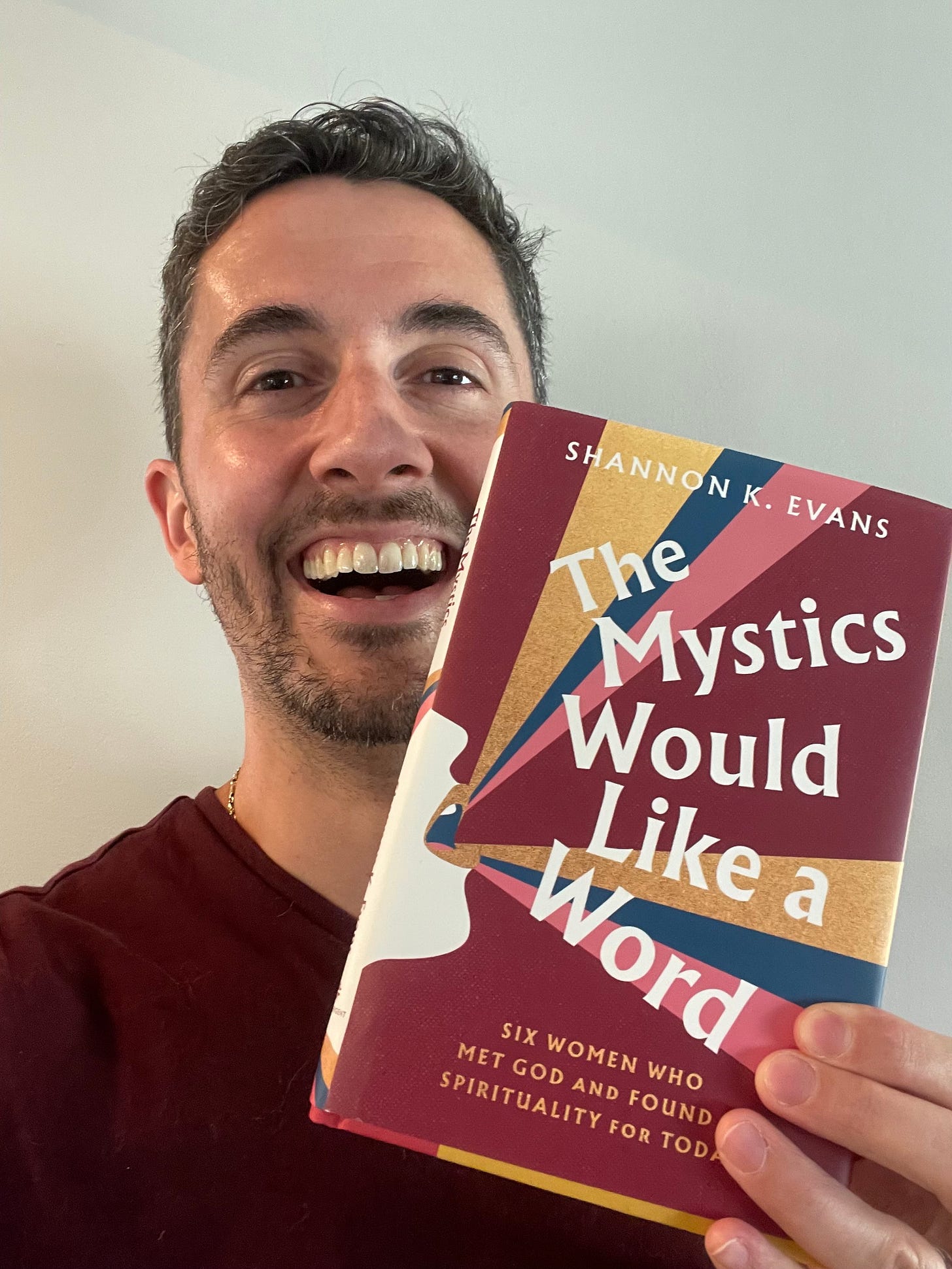Need Community? Be Vulnerable.
or, reflections on transhumanism

I interviewed Dr. Jason Eberl, professor and director of the Albert Gnaegi Center for Health Care Ethics at Saint Louis University, for a recent episode of “AMDG: A Jesuit Podcast.” Jason and I met at a Star Wars academic conference at DePaul University earlier this year, and before that, he very kindly blurbed by book “My Life with the Jedi: The Spirituality of Star Wars.” And well before that, I was reading Jason’s philosophical and ethical insights in one of the many pop culture and philosophy volumes he’s edited (e.g. “Star Wars and Philosophy,” “Star Trek and Philosophy” …you get it).
Anyway, I knew we were going to get along.
He only confirmed my hunch when, as pre-reading for our podcast conversation, he sent along several essays he’d written exploring the ethical implications of Star Trek plot beats vis a vis transhumanism.
Transhumanism as a concept, I soon learned, spans the gamut from someone taking medication that helps focus the mind before a big test all the way to someone who has turned themselves into a cyborg (read: mostly robot). The key is a desire to use science and technology to improve the human race.
Star Trek, of course, features actual cyborgs, but more importantly wrestles with the question of what it means to be human. Can Data—an Android—exhibit human qualities? What do we owe The Doctor—an Emergency Medical Hologram—in Star Trek: Voyager? The list goes on.
Dr. Eberl suggested two essential features of humanity: vulnerability and finitude. The latter, of course, means we will one day die; our lives as we experience them here and now will end. (Death, for some transhumanists, is the ultimate boogeyman; can humanity evolve past it?)
Finitude evokes vulnerability: There are things that can do us harm, that can quite literally end us. But vulnerability goes beyond life and death; there are many ways in which we may wish to make ourselves less vulnerable that have nothing to do with dodging the Grim Reaper’s scythe. Simply admitting we need help studying for the above-mentioned test is an act of vulnerability, as is taking the necessary steps to help accomplish that task. Recognizing our own inherent limitations, admitting to our flaws, accepting our wounds—these are all things that make us vulnerable.
Here's the point: I’m not going to litigate the virtues and pitfalls of transhumanism (but you should definitely listen to the podcast!). But I do find myself constantly coming back to this idea of vulnerability-as-essential to what it means to be human.
Here’s why: Vulnerability necessitates other people. It thrusts us into the arms of another, into relationship. Vulnerability is a public acknowledgement that I don’t have all the answers; I can’t do this on my own. I need someone else. And from there, community is born.
But let’s tease out the opposite. If we resist vulnerability, if we try to evolve beyond our wounds and weaknesses and necessary limitations, I wonder if we find ourselves increasingly isolated. Do we, perhaps unintentionally, say to others when we avoid sharing our vulnerabilities, I don’t really need or trust or accept you? Do we close ourselves off, make of ourselves mini gods, dependent on nothing and no one? Do we stop failing and consequently stop growing?
Transhumanism is a spectrum. And there’s a lot of good to be found along it. Using the tools of science, technology and medicine to help us reach our fullest potential is a great good. And in fact, the act of recognizing that need, of asking for help and support to reach that full potential is an act of vulnerability. Reaching our potential and cutting ourselves off from our wounds are obviously different things, but both can be goals of a transhumanist perspective. And so, we have to ask ourselves, What are we truly after? What do we really want? To discover our deepest selves or to avoid all possibility of pain?
I encourage you—as I have been doing myself—to reflect on this question of vulnerability as means to community, and to spend time thinking about the opposite path. (For my Ignatian friends, there are some clear and present echoes of the Two Standards…)
In which direction do we find our truest self? And what value do we place on the company of others?
And another thing:
The guys at the “Wampa’s Lair” Star Wars fan podcast invited me back this week to talk about canon and how it relates to Star Wars and religion. Give it a listen!
“My Life with the Jedi: The Spirituality of Star Wars” was reviewed over at US Catholic. Give it a read! (Hint: They liked it.)
This week’s “Now Discern This” is all about butterflies and bread. Check it out!
And some more!
My friend
has started an excellent Substack called . If you like my writing, you’ll love his. Subscribe!My friend
has a new book coming out—“The Mystics Would Like a Word: Six Women Who Met God and Found a Spirituality For Today!” I got an advanced copy this week, and as you can see in the photo below—a photo my daughter dubbed the “least crazy” of the ones I took—I’m pretty pumped. Preorder it!



I’m really struck by the lines you draw between vulnerability and isolation. That really resonates with me and I’m going to be chewing on that for awhile
OK but post the most crazy pic.